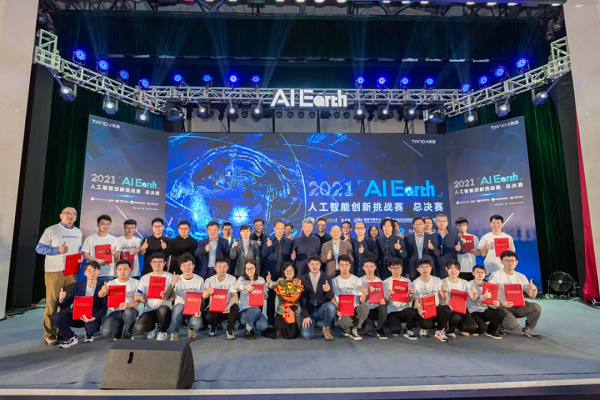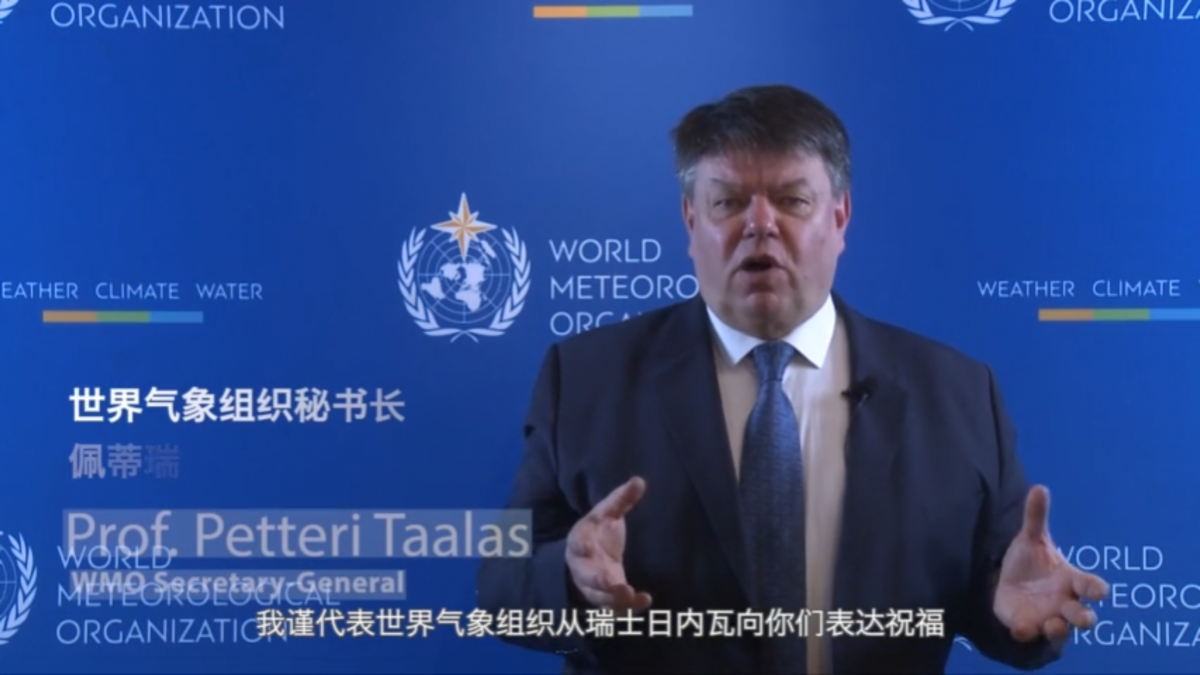ICPO congratulates the organizers of the 2021 ‘AI Earth’ competition for El Nino forecasting

As invited by the organisers of the 2021 “AI Earth” Artificial Intelligence Innovation Challenge -- AI Helps Accurate Weather and Ocean Forecast”, Jose Santos, Executive Director of ICPO sent his remark to the final and the closing ceremony of the competition, which was organised on the 52nd World Earth Day (22 April 2021). The event brought together government agencies, research institutes, and the private sector (Alibaba DAMO Academy), and gathered the international best practices on AI and Weather and Ocean Forecast.
The competition saw several breakthroughs. Among 2,846 teams from around the world, 13 teams achieved better performance than a model published on Nature in 2019, which shows a statistical forecast model employing a deep-learning approach to produce skillful ENSO forecasts for lead times of up to one and a half years. This latest competition went a step further by exploring El Nino forecast for lead times of up to two years, which shows the hope that AI can help forecast El Nino over a longer time span and more accurately. The results show that the global climate will be stable over the next two years, with a low probability of El Nino.
 |
 |
Dr. Jing-Jia Luo, member of CLIVAR Pacific Region Panel and member of the expert judge team, presented the remark on behalf of Jose. The remark briefly introduced the WCRP and CLIVAR’s work, and highlighted a wide array of regional climate extremes and societal impacts that may be caused by ENSO events, and significant improvements in performance and skills at greatly reduced cost and compute time in the scientific arena demonstrated by AI. Dr. Petteri Taalas, Secretary-General of the World Meteorological Organisation (WMO) also sent his remark to the event. He highlighted the AI’s role in advancing meteorological science, and encouraged more scientists and technicians to apply AI in earth system prediction and disaster warning. Dr. Huijun Wang, WCRP Joint Scientific Committee member, indicated that AI will play a more and more important role in the acquisition and use the global and regional meteorological data, as well as in the prediction and forecast of extreme climate events and disasters.
Meanwhile, a special issue of CLIVAR Exchanges will be coordinated by ICPO to introduce the results from the top teams of the competition; the practical use (or current status and perspective) on AI in operational ocean and climate forecasts; and existing studies and new results on the application of AI to Earth Science from invited international scientists.
(Photos coutersy of NUIST)











Add new comment